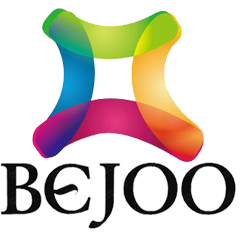Introduction:
The Chief Ministers Health Insurance Scheme, formerly known as Kalaingar Kaappittu Thittam, was inaugurated on July 23, 2009, with the primary goal of delivering high-quality healthcare to eligible individuals. This initiative strives to alleviate financial burdens for enrolled families by facilitating access to healthcare services through both government and private hospitals. The overarching vision is to progress toward universal health coverage by establishing effective connections with the public health system.

Commencing from January 2022 and extending through 2027, the scheme is currently administered by the United India Insurance Company. As of January 2022, the CMCHIS extends its coverage to approximately 1.37 crore families. Encompassing 1090 procedures, 8 follow-up procedures, and 52 diagnostic procedures, the scheme collaborates with 800 government and 900 private impaneled hospitals.
Key Features:
The scheme operates to furnish cashless hospitalization for specific ailments and procedures. Notably, it provides coverage of up to Rs. 5,00,000/- per family per year on a floater basis for the ailments and procedures specified in the scheme. By doing so, the CMCHIS takes a significant stride towards ensuring that vulnerable segments of society receive adequate healthcare without succumbing to financial distress. Simultaneously, it promotes the accessibility of quality medical care.
- Advertisement -
Conclusion:
The Chief Minister Comprehensive Health Insurance Scheme stands as a pivotal initiative, bridging the gap in healthcare accessibility for the marginalized. With its extensive coverage, emphasis on quality healthcare, and commitment to reducing financial burdens, the scheme exemplifies a commendable effort in fostering a healthier and more equitable society.
Chief Ministers Health Insurance
- Extensive Coverage for Medical Emergencies:
- The scheme offers financial support to families facing medical emergencies, mitigating the impact of high healthcare treatment costs in India.
- Access to high-end medical treatments is provided without the worry of substantial financial burdens on beneficiaries.
- Large Network of Hospitals:
- A significant advantage is the extensive network of empanelled hospitals under the scheme.
- This ensures quick access to medical facilities, even in remote areas, enhancing healthcare accessibility for beneficiaries.
- Comprehensive Coverage for Multiple Treatments:
- The scheme covers a wide range of treatments, reducing the likelihood of out-of-pocket expenses for beneficiaries.
- Beneficiaries can avail covered treatments free of cost, promoting greater affordability and access to healthcare.
- High Sum Insured:
- The Chief Minister Comprehensive Health Insurance Scheme provides substantial coverage, offering up to Rs. 5 lakhs per family per policy year.
- This amount proves adequate for most minor healthcare treatments, alleviating the financial burden on families with limited resources.
- Coverage for Additional Medical Procedures:
- In addition to standard health insurance policies, the scheme includes coverage for follow-up treatments and diagnostic procedures.
- This eliminates the need for beneficiaries to incur extra expenses on these procedures, providing additional financial relief and comprehensive healthcare coverage.
The Chief Minister Comprehensive Health Insurance Scheme thus stands out as a valuable initiative, ensuring not only financial protection during medical crises but also facilitating broader access to quality healthcare services for families across various socio-economic strata.
Chief Ministers Health Insurance Eligibility
The Chief Minister’s Comprehensive Health Insurance Scheme is specifically designed for residents of Tamil Nadu who fulfill certain eligibility requirements. To qualify for scheme benefits, the applicant’s name must be listed on the family card, and their family’s annual income should not exceed Rs.1,20,000/-. Verification of eligibility involves providing essential documents such as the family card, Aadhar card, and an income certificate issued by the VAO/Revenue Authorities. Additionally, a self-declaration from the head of the family is required to confirm eligibility.
The scheme defines “family” to include the eligible member, their legal spouse, their children, and their dependent parents. Adhering to the specified criteria ensures that these individuals can avail themselves of the scheme’s benefits, gaining access to quality healthcare services without incurring financial burdens. This targeted approach ensures that the Chief Minister’s Comprehensive Health Insurance Scheme reaches those who genuinely need assistance, fostering equitable access to healthcare resources for eligible residents of Tamil Nadu.
Exclusions
- Non-residents of Tamil Nadu are not eligible for this scheme.
- Individuals with an annual income exceeding Rs.72,000/– are not eligible for this scheme.
- Members not listed in the ration card of the family are not eligible for this scheme.
- Non-Sri Lankan refugees without proof of citizenship are not eligible for this scheme.
- Migrants from other Indian states who do not possess migration certificates from the appropriate authority are not eligible for this scheme.
- Orphans and rescued girl children who are not associated with any registered/unregistered organization are not eligible for this scheme.
Health Insurance
Health Insurance Policy for Students
Bharti AXA life Insurance Company Limited
Application Process
Step 1: Obtain an income certificate from the Village Administrative Officer or Revenue authorities.
Step 2: Gather all the necessary documents such as Aadhar card, ration card, and income certificate, and proceed to the enrollment center.
Step 3: Present your documents to the kiosk operator for verification.
Step 4: Provide your biometric details such as fingerprints, photograph, and eye scan.
Step 5: Your details will be verified and the e-card will be issued to you.
Documents Required
- Income certificate from the Village Administrative Officer/Revenue authorities
- Ration Card (both original and photocopy)
- Self-declaration from the head of the family
- Proof of identity
- Address proof
- Aadhar card
- PAN card (optional)


